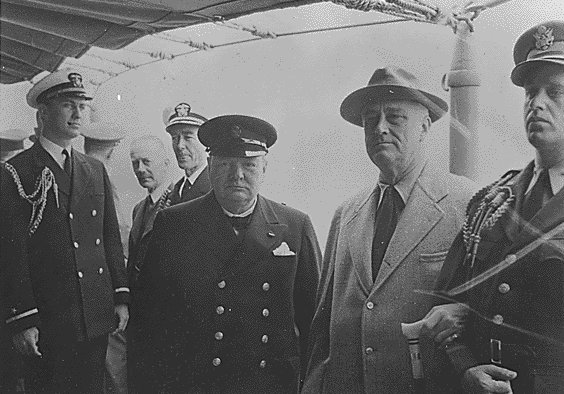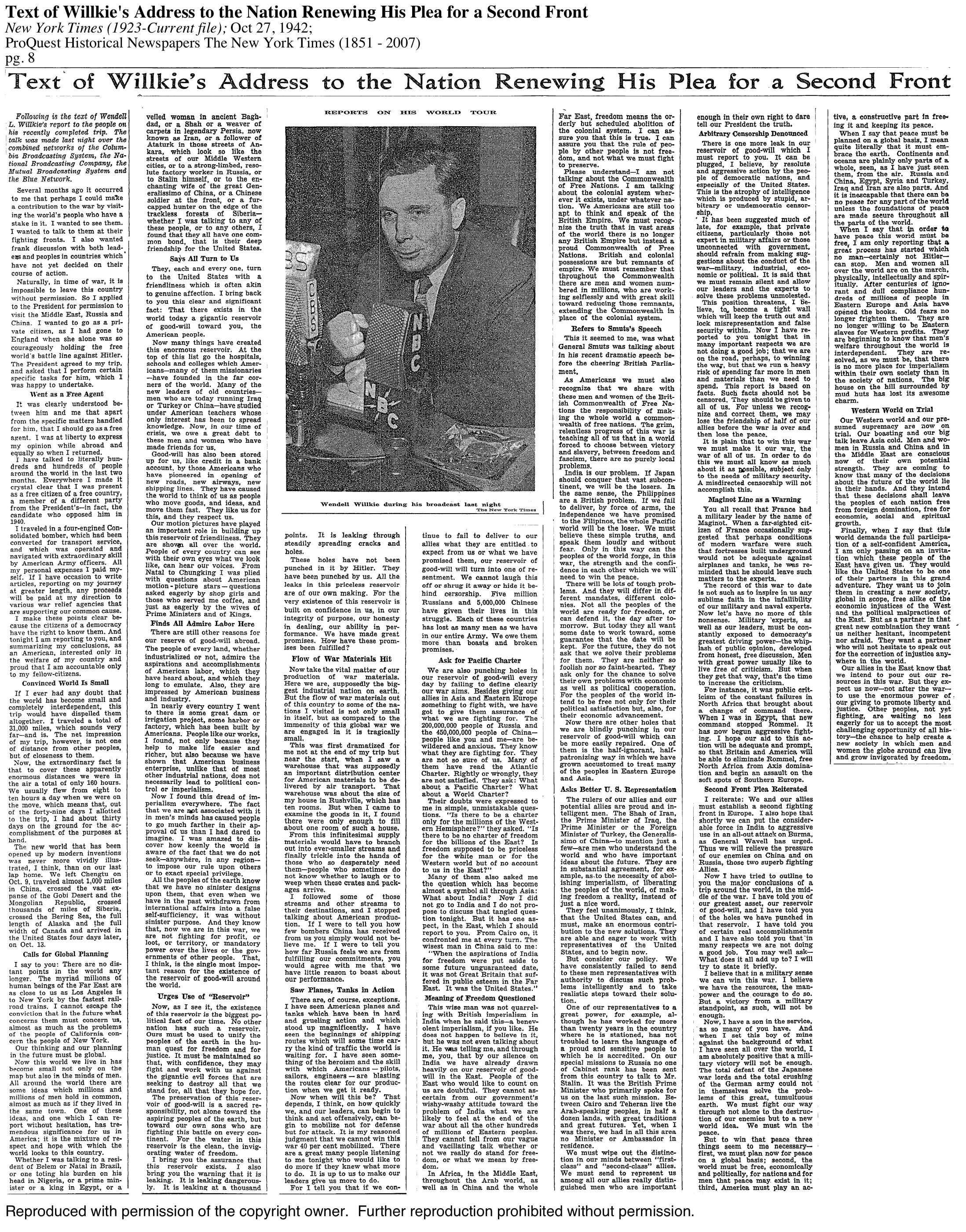
Image courtesy of the U.S. National Archives
The Atlantic Charter, signed by President Franklin D. Roosevelt and Prime Minister Winston Churchill on August 14, 1941 off the coast of Newfoundland.
- “Third, they respect the right of all peoples to choose the form of government under which they will live; and they wish to see sovereign rights and self government restored to those who have been forcibly deprived of them;”
- purpose: “provide an opportunity for the two leaders to become aquainted and to discuss military strategy” (Hess, 24)
- published as a press release and not a “formally signed document” (Hess, 27)
Dennis Kux, India and the United States: Estranged Democracies, 1941-1991 (1992).
- Marks early 1941 as beginning of U.S. interest in Indian affairs; gives example of Lend-Lease policy
- For India to receive aid, accepts British proposal of having a direct Indian representative in the U.S. and it turn suggests to establish an American position in New Delhi: Sir Girja Shakar Bajpai (Agent-General in Washington) and Thomas Wilson (Commissioner in New Delhi) (7-8)
- May 1941- Adolph A. Berle, Assistant Sec. of State for Economic Affairs, suggests that Britain “explore the possibility of making India equal of other members of the British Commonwealth” (FRUS, vol. III, pg. 176-177)
- Atlantic Meeting: according to Elliot Roosevelt (FDR’s son) FDR and Churchill had lengthly disagreements about colonialism with FDR stating: “I can’t believe that we can fight a war against fascist slavery, and at the same time not work to free people from all over the world from a backward colonial policy” (from the disputed As He Saw It, by Elliot Roosevelt)
- Americans argued that article 3 applied universally but the British claimed it only referred to territory taken over by the Nazis, an interpretation that Kux argues: “caused bitter disappointment in India and dissatisfaction in Washington” (10)
Harold Gould, Sikhs, Swamis, Students, and Spies: The India Lobby in the United States, 1900-1946 (2006).
- cites the “ideological spin-off” from the Atlantic Charter as one of the motivating factors behind the Cripps Mission (26)
- quotes Robert Sherwood on the Charter: it “turned out to be incluculably more powerful an instrument than the officers of the British Government intended it to be when they first proposed it. They discovered indeed that when you state a moral principle, you are stuck with it, no matter how many fingers you have kept crossed at the moment” (emphasis added by Gould, from Sherwood, Roosevelt and Hopkins 1950)
Hess, America Encounters India, 1941-1947 (1971)
- The Charter as the “ideological focus of American concern with Indian nationalism” (24)
- The extension of Article 3 first raised in Burma and Iran, only after Churchill’s September 9 statement that it did not apply to the British Empire and therefore India (27-28)
- “American liberal reaction to Churchill’s speech reflected disillusionment” (examples given include The New Republic, The Christian Century, Asia) (29)
- When Eleanor Roosevelt wrote to her husband about his stance on India on August 21, FDR replied: “I cannot have probable feelings on India” (qtd. in Hess, 32)




